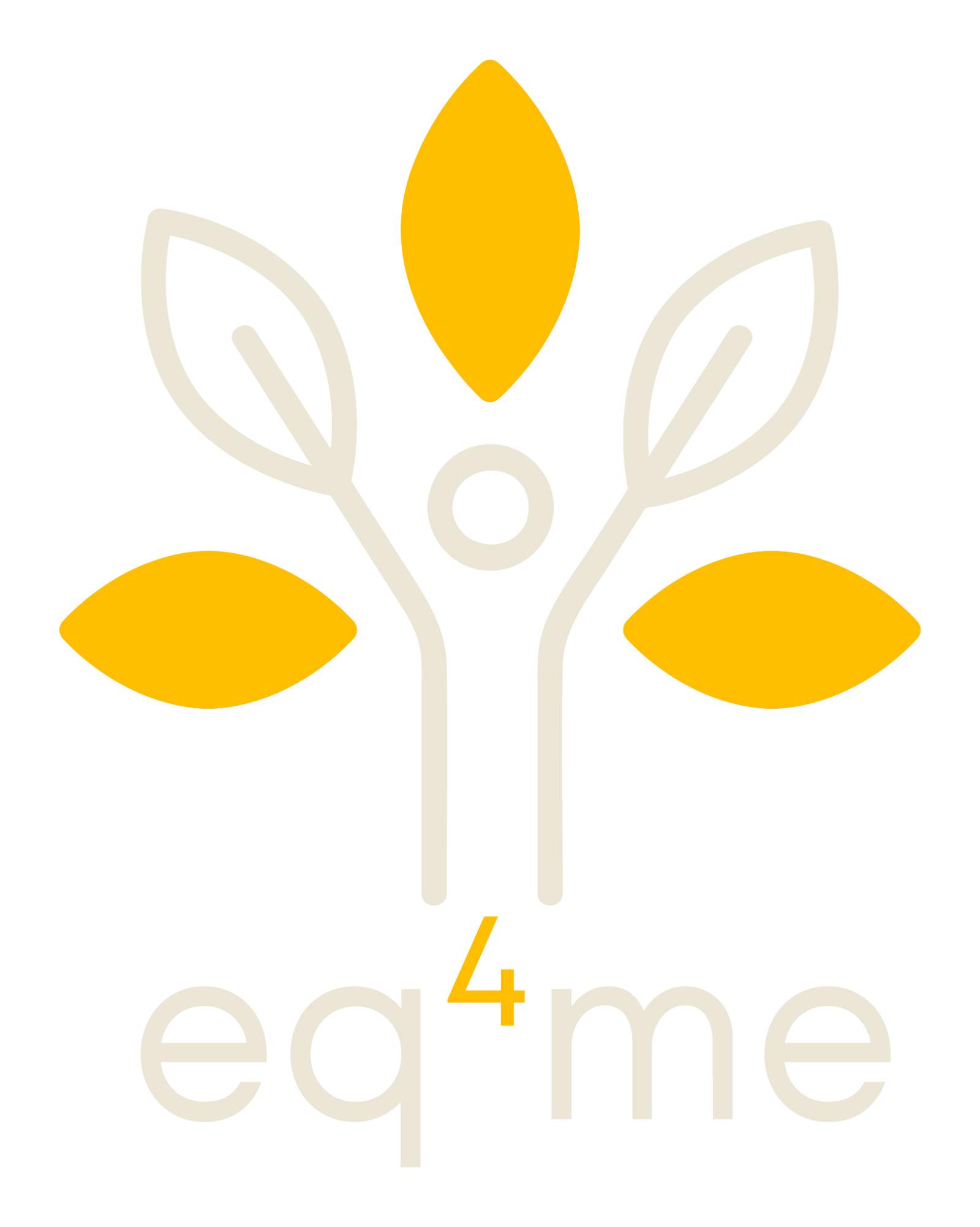If emotions are essentially impulses to act, you may ask yourself, “How do I change what is essentially an automatic response? Is it possible?”
The good news is, yes, you can change and control the way you respond to things, and this is the reason why emotional intelligence is so important to your success in life and at work.
Indeed, those of us who employ a balanced blend of reason, feeling and action achieve far better results than those who don’t. EQ is so critical to success in business it accounts for 58% of performance in all types of jobs and is the single biggest predicter of performance in the workplace.
Practicing self-awareness is a bit like being the pilot of a little helicopter that hovers around your head which helps you to be conscious of yourself, the situation you are in and the people you are communicating with so that you can determine how to respond to what you are thinking, and what they are saying and doing.
The definition of consciousness, which informs our understanding of self-awareness, is the state of being aware of oneself, others and one’s surroundings. It is being aware of one’s own perceptions, thoughts and feelings and the perceptions, thoughts and feelings of others.
Perception is particularly hard to fathom in ourselves and in others because the emotional mind takes elements that symbolise reality, or triggers a memory of it, to be the same as that reality. This is why similes, metaphors and images all speak to the emotional mind, as do the arts, novels, films, poetry, music, theatre and opera. Great spiritual teachers like Jesus spoke in parables which connected with people on a deep emotional level because our minds are associative. Freud called this way of thinking the “primary process of thought”.
Loose associations often determine the flow of a narrative or story. One object symbolises another and can easily displace another. Wholes are condensed into parts where there is no, seemingly, logical laws of cause and effect. There is no such thing as “no” in the “primary process of thought”. Things need not be defined by their objective reality. What matters is how they are perceived.
What something reminds us of can be far more important to the emotional mind than what it is. Identities can be perceived by a single part which evokes the whole. A picture speaks a thousand words and a single word a thousand pictures.
Apart from creating from the “primary process of thought”, like an artist, poet or musician would, by suspending objective criticism of their work and just going with the flow, so is perceiving the meaning of artworks, poems and music by the greatest creators of our time.
To get to the heart of a work of art, is to have a subjective and immersive emotional experience which is temporarily devoid of judgement.
The emotional mind is indeed mysterious, wonderful and sometimes difficult to fathom. Just like anger, fear, sadness and shame are sparked by sights, sounds and thoughts we associate with similar experiences or perceptions we have had in the past, so are feelings of deep happiness and euphoria sparked by revelation experienced through our associative emotional brain.
The biggest obstacle however, to increasing our self-awareness, is our tendency to avoid seeing ourselves for who we really are. We are very creative when it comes to guiding our thoughts away from difficult emotions or distracting ourselves, so we don’t have to face the truth. This is temporary and it doesn’t actually work because the same emotions appear again and again on cue to the same trigger resulting in the same reaction.
Self-awareness requires emotional insight and analytical reflection; the ability to identify patterns in our emotional life and our reactions to those emotions as well as recognising and understanding similar patterns in others.
It requires self-acceptance; the ability to accept yourself, your thoughts and your circumstances without judging yourself, feeling good about yourself and seeing yourself in a positive light, recognising your strengths and weaknesses honestly and being able to laugh at yourself.
Self-awareness is being able to label your full range of feelings, positive and negative, because they serve a vital purpose in your life. Apart from protecting you in the face of danger, your feelings are a blueprint for understanding your subconscious memories and the source of your “emotional why”. Two thirds of us cannot label our feelings as they happen because we have not trained ourselves to do so, and this is the key gap we need to fill in order to become more emotionally intelligent and more effective in our lives and in our relationships.
Self-awareness requires constant conscious practice; it is our ability to remain conscious of our feelings as they emerge, recognising our body’s response to the things that trigger them, and proceeding with intelligent understanding of ourselves, our thoughts and our behaviour in the present.
When we are self-aware, we are more likely to pursue the right opportunities and put our strengths to work, and importantly, manage our emotions and keep them from holding us back.
Self-awareness is a key component of success; as our self-awareness increases, our satisfaction with life and our purpose in life increases and we are able to reach our goals at home and at work.
This requires a positive mindset so that we can cope with deep self-reflection, which is required when we reflect on our more intense emotional episodes which may require focussing on feelings that are not pleasant but provide us with key information for improving the way we manage our emotions and behaviour.
Self-awareness is the foundational emotional skill; when you have it, it is much easier to manage your emotions, improve your social life and enjoy better family and work relations.
If you want to increase your EQ then investing in either our Emotional Intelligence 101 course or our Leading with Emotional Intelligence course will be of great benefit to you.
The good news is, yes, you can change and control the way you respond to things, and this is the reason why emotional intelligence is so important to your success in life and at work.
Indeed, those of us who employ a balanced blend of reason, feeling and action achieve far better results than those who don’t. EQ is so critical to success in business it accounts for 58% of performance in all types of jobs and is the single biggest predicter of performance in the workplace.
Practicing self-awareness is a bit like being the pilot of a little helicopter that hovers around your head which helps you to be conscious of yourself, the situation you are in and the people you are communicating with so that you can determine how to respond to what you are thinking, and what they are saying and doing.
The definition of consciousness, which informs our understanding of self-awareness, is the state of being aware of oneself, others and one’s surroundings. It is being aware of one’s own perceptions, thoughts and feelings and the perceptions, thoughts and feelings of others.
Perception is particularly hard to fathom in ourselves and in others because the emotional mind takes elements that symbolise reality, or triggers a memory of it, to be the same as that reality. This is why similes, metaphors and images all speak to the emotional mind, as do the arts, novels, films, poetry, music, theatre and opera. Great spiritual teachers like Jesus spoke in parables which connected with people on a deep emotional level because our minds are associative. Freud called this way of thinking the “primary process of thought”.
Loose associations often determine the flow of a narrative or story. One object symbolises another and can easily displace another. Wholes are condensed into parts where there is no, seemingly, logical laws of cause and effect. There is no such thing as “no” in the “primary process of thought”. Things need not be defined by their objective reality. What matters is how they are perceived.
What something reminds us of can be far more important to the emotional mind than what it is. Identities can be perceived by a single part which evokes the whole. A picture speaks a thousand words and a single word a thousand pictures.
Apart from creating from the “primary process of thought”, like an artist, poet or musician would, by suspending objective criticism of their work and just going with the flow, so is perceiving the meaning of artworks, poems and music by the greatest creators of our time.
To get to the heart of a work of art, is to have a subjective and immersive emotional experience which is temporarily devoid of judgement.
The emotional mind is indeed mysterious, wonderful and sometimes difficult to fathom. Just like anger, fear, sadness and shame are sparked by sights, sounds and thoughts we associate with similar experiences or perceptions we have had in the past, so are feelings of deep happiness and euphoria sparked by revelation experienced through our associative emotional brain.
The biggest obstacle however, to increasing our self-awareness, is our tendency to avoid seeing ourselves for who we really are. We are very creative when it comes to guiding our thoughts away from difficult emotions or distracting ourselves, so we don’t have to face the truth. This is temporary and it doesn’t actually work because the same emotions appear again and again on cue to the same trigger resulting in the same reaction.
Self-awareness requires emotional insight and analytical reflection; the ability to identify patterns in our emotional life and our reactions to those emotions as well as recognising and understanding similar patterns in others.
It requires self-acceptance; the ability to accept yourself, your thoughts and your circumstances without judging yourself, feeling good about yourself and seeing yourself in a positive light, recognising your strengths and weaknesses honestly and being able to laugh at yourself.
Self-awareness is being able to label your full range of feelings, positive and negative, because they serve a vital purpose in your life. Apart from protecting you in the face of danger, your feelings are a blueprint for understanding your subconscious memories and the source of your “emotional why”. Two thirds of us cannot label our feelings as they happen because we have not trained ourselves to do so, and this is the key gap we need to fill in order to become more emotionally intelligent and more effective in our lives and in our relationships.
Self-awareness requires constant conscious practice; it is our ability to remain conscious of our feelings as they emerge, recognising our body’s response to the things that trigger them, and proceeding with intelligent understanding of ourselves, our thoughts and our behaviour in the present.
When we are self-aware, we are more likely to pursue the right opportunities and put our strengths to work, and importantly, manage our emotions and keep them from holding us back.
Self-awareness is a key component of success; as our self-awareness increases, our satisfaction with life and our purpose in life increases and we are able to reach our goals at home and at work.
This requires a positive mindset so that we can cope with deep self-reflection, which is required when we reflect on our more intense emotional episodes which may require focussing on feelings that are not pleasant but provide us with key information for improving the way we manage our emotions and behaviour.
Self-awareness is the foundational emotional skill; when you have it, it is much easier to manage your emotions, improve your social life and enjoy better family and work relations.
If you want to increase your EQ then investing in either our Emotional Intelligence 101 course or our Leading with Emotional Intelligence course will be of great benefit to you.




